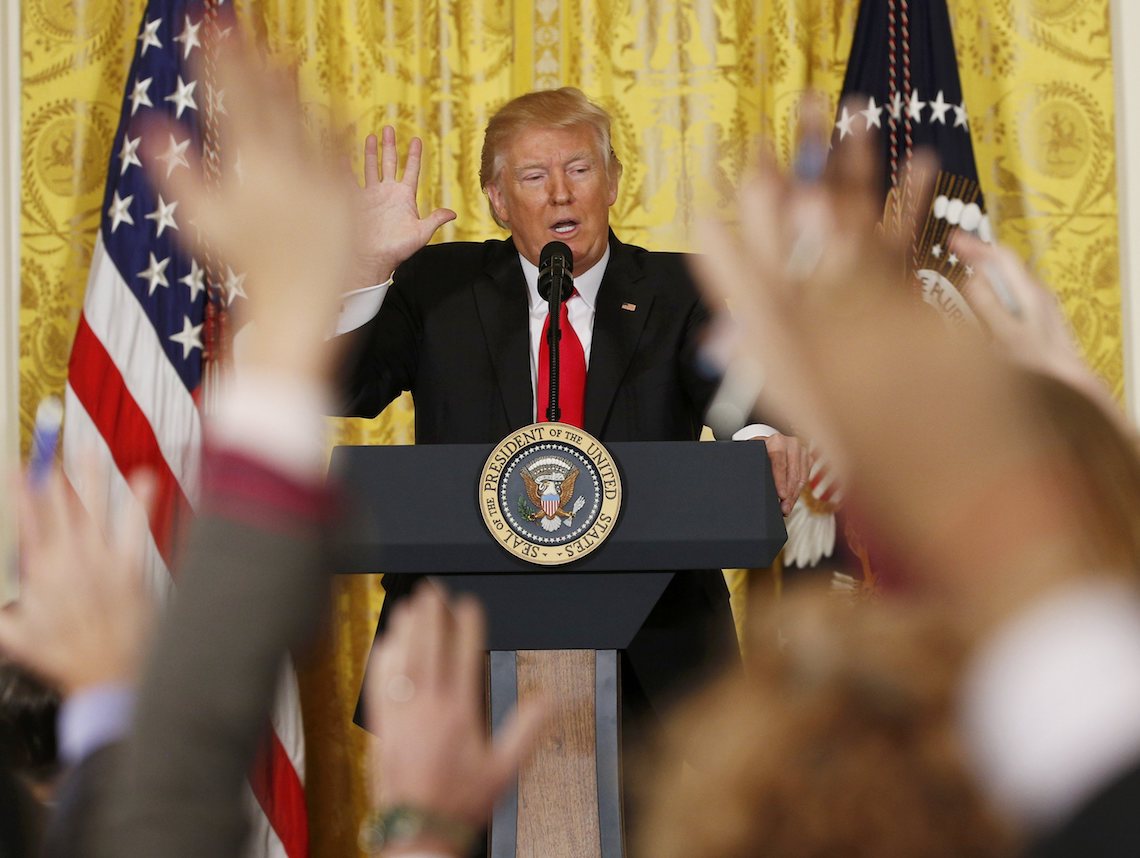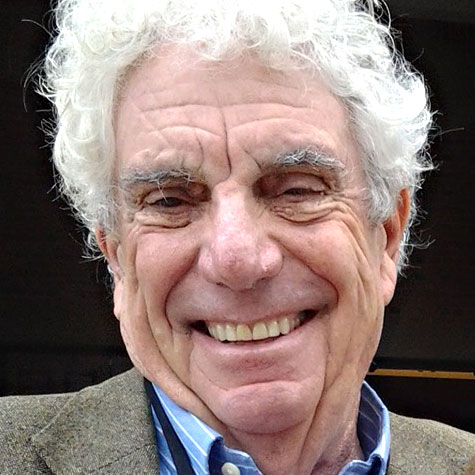 President Donald Trump takes questions during a news conference at the White House on Feb. 16. Photo by Kevin Lamarque/Reuters
President Donald Trump takes questions during a news conference at the White House on Feb. 16. Photo by Kevin Lamarque/Reuters Journalism is no place for the sensitive. So when President Donald Trump said the press “is the enemy of the American people,” I didn’t retreat to a crying couch or whine.
I saw it as a warning from one enemy to another. We’re not the enemy of the American people. Rather, the press is the enemy of Trump, just as he is the enemy of journalists.
The press wants to know about his secretive dealings with Russia, his plan to dismantle Obamacare, what he intends to do about immigrants and other matters. This isn’t idle curiosity or an effort to take down Trump. It’s the job of journalists to tell the American people what’s going on.
Trump opposes that. He is trying to silence reporters with the powerful tools he has at hand, possibly even prosecuting reporters and their sources in the manner of dictator-President Recep Tayyip Erdogan of Turkey. To Trump, news is what he spews out, as he did at his interminable press conference earlier in the month.
Thus there is no chance of détente between the enemy camps. With that in mind, I thought it would be helpful to readers to explain what reporters do and why it is important to people.
My workweek is divided between writing for the Jewish Journal, the websites Truthdig and LAObserved and the UCLA quarterly Blueprint. I am also working on a memoir, “An American Journalist.” I’ll give you a few examples of what I do.
My columns for the Journal deal mostly with Jewish community news; I try to dig into the community and find good works that have been ignored. I discover them through a web of contacts built up over the years. For example, during the recession, Jewish Family Service of Los Angeles led me to the new Jewish unemployed, often professional people who had been donors to charities but now depended on them. This gave me a view of the recession not seen in most mainstream publications. A column on rising rents facing elderly Jewish tenants took me to three Jewish social service agencies and to the representative of a developer seeking a rent increase.
Truthdig is different. It is a progressive website featuring national and international news. I express my liberal opinions but try to back them up with reporting. When Bernie Sanders’ national campaign staff did not return calls, I looked up the local campaign operation on Facebook, finding events and people who told me what was happening in the campaign. To write about the recent Women’s March, I pushed my way into a packed Metrorail train and through downtown crowds, interviewing people and shooting pictures with my iPhone, an effort I thought was pretty good for an 82-year-old.
This is conventional newsgathering. Reporters, if they stay in the business, enjoy the challenge. And they know the skills and determination developed in finding and writing about recipients of a Jewish charity are the same ones required in finding praiseworthy public-spirited citizens and officials — and nailing crooked campaign donors at city halls and the Capitol in Sacramento. Reporters are put to their greatest test in penetrating the maze of elected officials and bureaucrats in Washington, D.C., experts in obfuscating.
Documents help penetrate the maze. So do interviews with officials, elected and non-elected. Part of a reporter’s skill is getting such people to talk — and to tell the truth. But sometimes it is too dangerous for these sources to risk their jobs. Yet the information is too important to remain hidden. So the official leaks it to a reporter with the promise of confidentiality.
The promise isn’t given lightly. The reporter must find out if the source is truthful — not an easy task. The source must trust the reporter enough to believe he or she will go to jail to protect his or her confidentiality.
Some leaks are self-serving. They are a great way to sideline a career rival. And that seems to be at the heart of some of the leaks from this unruly administration. But a growing number of news accounts indicate that many leaks come from intelligence officials and others concerned with dealings Trump and his staff had with the Russians before and after the inauguration. That’s serious. It’s the reason, I think, Trump has labeled the press an enemy of the American people.
But here’s my point: Turning the public against the press is a threat to democracy. “If you want to preserve democracy as we know it, you have to have a free and, many times, adversarial press,” said Republican Sen. John McCain of Arizona. “And without it, I am afraid that we would lose so much of our individual liberties over time. That’s how dictatorships get started.”
The public, if one poll is to be believed, narrowly says the Trump administration is more believable than the press. The survey, by Fox News, also showed a sharp partisan split with Republicans trusting Trump over the media by a wide margin, and Democrats similarly backing the press over Trump.
Hopefully, more McCains will emerge among the Republican majority in Congress. Until that happens, reporters had better remain insensitive to Trump and his talk of enemies as they push ahead in a search for the truth.
BILL BOYARSKY is a columnist for the Jewish Journal, Truthdig and L.A. Observed, and the author of “Inventing L.A.: The Chandlers and Their Times” (Angel City Press).























 More news and opinions than at a Shabbat dinner, right in your inbox.
More news and opinions than at a Shabbat dinner, right in your inbox.